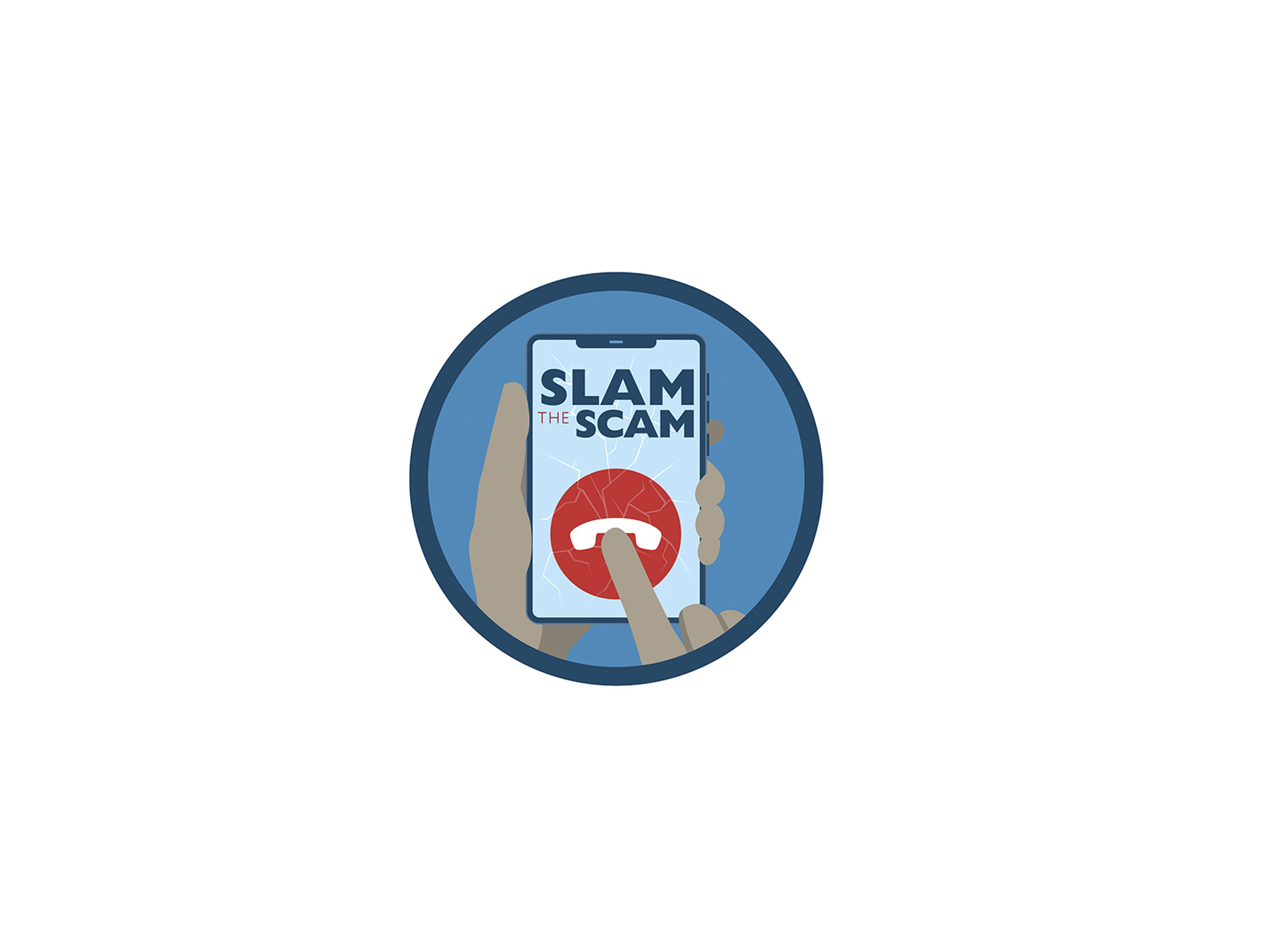National Slam the Scam Day
On National Slam the Scam Day and throughout the year, the Social Security Administration Office of the Inspector General gives you the tools to recognize Social Security-related scams and stop scammers from stealing your money and personal information. Share scam information with your loved ones. Slam the Scam!
Recognize the four basic signs of a scam:
- Scammers pretend to be from a familiar organization or agency, like the Social Security Administration. They may email attachments with official-looking logos, seals, signatures, or pictures of employee credentials.
- Scammers mention a problem or a prize. They may say your Social Security number was involved in a crime or ask for personal information to process a benefit increase.
- Scammers pressure you to act immediately. They may threaten you with arrest or legal action.
- Scammers tell you to pay using a gift card, prepaid debit card, cryptocurrency, wire or money transfer, or by mailing cash. They may also tell you to transfer your money to a “safe” account.
Ignore scammers and report criminal behavior. Report Social Security-related scams to the SSA Office of the Inspector General (OIG).
REPORT A SCAM! |
Visit www.ssa.gov/scam for more information and follow SSA OIG on Facebook, Twitter, and LinkedIn to stay up to date on the latest scam tactics. Repost #SlamtheScam information on social media to keep your friends and family safe.
Known Tactics Scammers Use
Scammers frequently change their approach with new tactics and messages to trick people. We encourage you to stay up to date on the latest news and advisories by following SSA OIG on LinkedIn, Twitter, and Facebook or subscribing to receive email alerts.
These are red flags; you can trust that Social Security will never
- Threaten you with arrest or legal action because you don’t agree to pay money immediately.
- Suspend your Social Security number.
- Claim to need personal information or payment to activate a cost-of-living adjustment (COLA) or other benefit increase.
- Pressure you to take immediate action, including sharing personal information.
- Ask you to pay with gift cards, prepaid debit cards, wire transfers, cryptocurrency, or by mailing cash.
- Threaten to seize your bank account.
- Offer to move your money to a “protected” bank account.
- Demand secrecy.
Be skeptical and look for red flags. If you receive a suspicious call, text message, email, letter, or message on social media, the caller or sender may not be who they say they are. Scammers have also been known to:
- Use legitimate names of Office of Inspector General or Social Security Administration employees.
- “Spoof” official government phone numbers, or even numbers for local police departments.
- Send official-looking documents by U.S. mail or attachments through email, text, or social media message.
It is illegal to reproduce federal employee credentials and federal law enforcement badges. Federal law enforcement will never send photographs of credentials or badges to demand any kind of payment, and neither will federal government employees.
Report the scam.
How to Avoid a Scam
Protect yourself, friends, and family — If you receive a suspicious call, text, email, social media message, or letter from someone claiming to be from Social Security:
- Remain calm. If you receive a communication that causes a strong emotional response, take a deep breath. Talk to someone you trust.
- Hang up or ignore the message. Do not click on links or attachments.
- Protect your money. Scammers will insist that you pay with a gift card, prepaid debit card, cryptocurrency, wire transfer, money transfer, or by mailing cash. Scammers use these forms of payment because they are hard to trace.
- Protect your personal information. Be cautious of any contact claiming to be from a government agency or law enforcement telling you about a problem you don’t recognize, even if the caller has some of your personal information.
- Spread the word to protect your community from scammers.
- Report the scam to the Office of the Inspector General at oig.ssa.gov/report.
How to Report a SCAM
When you report a scam, you are providing us with powerful data that we use to inform others, identify trends, refine strategies, and take legal action against the criminals behind these scam activities.
What to Do if You Were Scammed
Recovering from a scam can be a long and difficult process. Here are some reminders:
- Do not blame yourself. Criminal behavior is not your fault.
- Stop contact with the scammer. Do not talk to them or respond to their messages.
- Notify the three major credit bureaus: Equifax, Experian, and TransUnion to add a fraud alert to your credit report.
The Federal Trade Commission’s “What To Do if You Were Scammed” article has information about what to do if you paid someone you think is a scammer or gave a scammer your personal information or access to your computer or phone.
Help Us “Slam the Scam”!
Please visit our Resources page for more information on how you can help us “Slam the Scam”.
About the Social Security Administration Office of the Inspector General
The Social Security Administration Office of the Inspector General has independent oversight of SSA’s programs and operations. SSA OIG is responsible for conducting audits, evaluations, and investigations and reporting on and providing recommendations for programs, operations, and management improvements.

